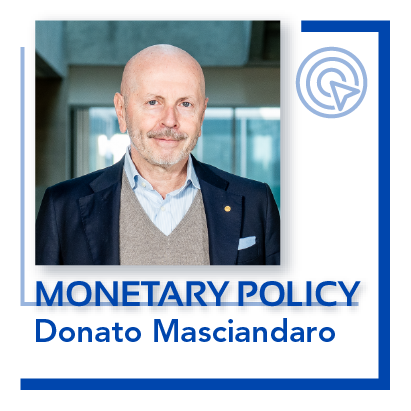
2023 OUTLOOK
By Francesco Giavazzi
Tim Harford, in his Undercover Economist column on the Financial Times dated 28 October 2022, picks up an observation by US psychologist Daniel Gilbert. In his book Stumbling on Happiness (Knopf, 2006), Gilbert wrote that: "Most of us make at least three important decisions in our lives: where to live, what to do, and with whom to do it. We choose our towns and our neighborhoods, we choose our jobs and our hobbies, we choose our spouses and our friends. Making these decisions is such a natural part of adulthood that it is easy to forget that we are among the first human beings to make them. For most of recorded history, people lived where they were born, did what their parents had done, and associated with those who were doing the same. Millers milled, Smiths smithed, and little Smiths and little Millers married whom and when they were told. Social structures (such as religions and castes) and physical structures (such as mountains and oceans) were the great dictators that determined how, where, and with whom people would spend their lives, which left most folks with little to decide for themselves. But the agricultural, industrial, and technological revolutions changed all that, and the resulting explosion of personal freedom created a bewildering array of options, alternatives, choices, and decisions that our ancestors never faced. For the first time, our happiness is in our hands and is forged through a multitude of choices." However, Gibert notes that these choices are not boundless. This in turn brings to mind a sentence by Armistead Maupin in the novel Tales of the city (Harper & Row, 1978): "You can have a hot job, a hot apartment and a hot lover –– but you can't have all three at the same time." The concept holds true for individual choices as much as for political choices.
However, Gibert notes that these choices are not boundless. This in turn brings to mind a sentence by Armistead Maupin in the novel Tales of the city (Harper & Row, 1978): "You can have a hot job, a hot apartment and a hot lover –– but you can't have all three at the same time." The concept holds true for individual choices as much as for political choices.
This is a rule (first formulated by Nobel laureate Robert Mundell) which for some decades now economists have been applying to the trilemma of "fixed exchange rates, monetary policy independence, and free capital movements," also known as the "impossible trinity".
Dani Rodrik, in my opinion one of the most far-sighted economists of the last four decades, has applied the principle of the impossible trinity to economic policy, by reminding us that there can be national rules, you can integrate internationally or you can have economic policy be determined by popular consent in free elections, but you cannot have all three at the same time.
Rodrik's trilemma helps us reflect on the challenges that await us in the coming years. Let's look at the European Union and its member states starting from Italy, now that a new government majority has taken office, and apply Rodrik's principle of the impossible trinity. In Italy - but this applies to all 27 members - the new government has reached power thanks to free elections: this condition is immutable. Following Rodrik, the choice is therefore between the two other options: either international integration or economic policy decided at the national level. The two are mutually incompatible.
The Right, at least the largest party of the Italian Right, and this also applies to other parties of the European Right, interprets Europe as a Confederation, not a Union of States. But common debt instruments, such as those that have made possible the Next Generation EU program, imply a political union between countries, because a confederation is too flexible a political structure to be compatible with the issuance of common debt.
Therefore, the national rules of Rodrik's trilemma stay in place. It would therefore seem that if we want to repeat the experience of National Recovery and Resilience Plan (PNRR, the Italian acronym) with the issuance of mutualized debt, we need to renounce to the autonomy of national economic policy. Since monetary policy has been irreversibly abandoned by joining the euro, the only instrument on which countries can have discretionary powers is fiscal policy.
Therefore, at the center of next year's political debate there will be the negotiation over the reform of European fiscal rules. At the beginning of November, the European Commission issued a Communication on the redesign of EU budgetary rules. The proposal is ambitious and represents a marked change with respect to the past.
As Massimo Bordignon wrote on lavoce.info: "The Commission is now trying to change its approach by proposing a less mechanical system, more growth friendly and linked to the different national needs. The rules are therefore differentiated on the basis of the public finance situation in the various countries, essentially proposing an exchange between more incisive rules for high-debt countries, i.e. those that pose more risk to themselves and others (the Club Med, i.e. the six countries of Southern Europe with a debt-to-GDP ratio over 90%), and a more gradual implementation which is in line with the aspirations of individual countries."
It is a proposal that seeks to transform the relationship between the Commission and member states, moving beyond the times when members were always trying to haggle for additional budgetary space, while the Commission played the role of staunch guardian of fiscal rules. The rules in force until the pandemic, and then temporarily suspended, favored this situation, being the product of an accumulation of legislation and multiple parameters of reference, not justified by rational economic principles. The Commission's proposal shifts the oversight of national accounts towards an explicit economic objective, the reduction of the debt-to-GDP ratio in the medium term to foster a regime in which individual countries take responsibility more directly for their own financial stability (and in repayment plans, not only budgetary interventions but also reforms are envisaged).
The Commission's proposal, continues Bordignon, "is certainly more reasonable than the system of current rules and builds on similar ones which in the meantime have been put forward by individual researchers and international bodies such as the International Monetary Fund and the European Fiscal Board. The link between the proposal and the experience of the PNRR is also evident. As in that case, countries are required to propose their own intervention plan within a framework indicated by European bodies; thus, national needs are taken into account. The idea is that in this way the debt correction process, rather than being perceived as imposed by Brussels, is seen as a national commitment, which in theory should involve, for the four- or seven-year duration of the plan, both the government ruling at a given time and the opposition. There is therefore also an implicit bet on the ability of high-debt countries to anchor themselves to economic policies consistent with the objective, regardless of the government in office."
But there is an obvious limitation in the proposal with respect to the parallelism with the PNRR; in the case of national recovery plans, EU resources on the one hand guaranteed compliance with the Pact by member countries and on the other legitimized the strict control of the Commission on the behavior of governments. In the case of debt repayment plans, the (slightly reduced) financial sanctions remain essentially at current levels (never applied in reality), with the additional reputational aspect deriving from the explicit commitment made by the country towards the European Council. It remains to be seen whether this will be sufficient to convince the countries most reluctant about reform that this is in fact feasible, or it results in an indefinite postponement of the adjustment process by high-debt states. It is no coincidence that both the IMF and EFB proposals, unlike those of the Commission, imagine an expansion of common EU resources onto which a more rigid sanctioning system is grafted. An increased EU budget would be given the task of financing common European policies and supporting the management of the economic cycle, with resources that would, however, be lost if a country does not respect the proposed plan. Just like what happens in the case of the PNRR. But this option, Bordignon notes, is not foreseen in the Commission's project.
We will see whether this openness on the part of the Commission to national "ownership" of budgetary policy – something consistent with Rodrik's Trilemma – will succeed in reducing the debt-to-GDP ratio in countries where it is too high. It is certainly the most important economic reform of 2023.









